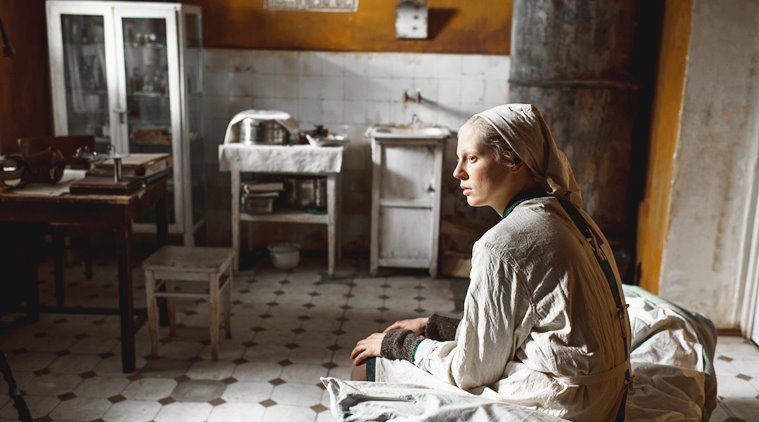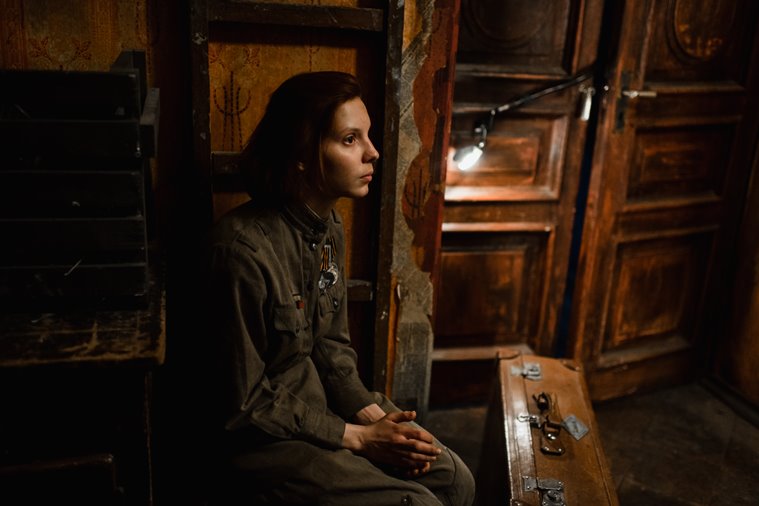
The Indian Express
Beanpole: A moving tale of women and war
Directed and written by Kantemir Balagov, this Russian movie is a poignant tale of two young women as they hope and try to heal from the wreckage of war
by Alaka Sahani“My heroes, like the city they live in, are mangled by a horrible war. They live in a city that has endured one of the worst sieges in the history of warfare,” says Russian director Kantemir Balagov about his second feature film Beanpole (2019). The 29-year-old, who has emerged as a powerful new voice in cinema, sets this story about post-war trauma in Leningrad of 1945 when World War II ravaged the city and its citizens. The “heroes”, Balagov is referring to, are two young women, Iya and Masha, played by Viktoria Mironshnichenko and Vasilisa Perelygina respectively. “They are psychologically crippled by the war and it will take time for them to learn to live their normal lives,” says Balagov, who won the best director award in the Un Certain Regard at Cannes last year, in a statement.
The movie opens with Iya, who is also known as ‘Beanpole’ because of her unusually tall figure, having one of her paralytic fits as she remains frozen. After the war, she has been working as a nurse at a hospital, tending to the battered and bruised soldiers. Providing some moments of relief to these patients, coping with the physical and psychological ravages of the war, is Pashka, a little boy Iya is bringing up. Pashka brings out the innocence in the war veterans who probably would never fully recover physically and mentally from the horrors they have gone through.

In this brilliantly-crafted exploration of the haunting aftermath of a war, Pashka’s death is one of the early shocks. But the post-war despair doesn’t end with this personal tragedy. Masha returns from the war with a scarred body, hoping to get rid of the memories of war, seeking happiness and optimistic of a new life. With that, comes the revelation that Pashka was in fact Masha’s son. Iya, her closest friend, was looking after him in her absence. Both of them have experienced the severity of the war together. When Iya is invalidated due to her post-concussion syndrome, she chose to look after the baby who was born in the war zone. Beanpole is about the deep, undefined bond between Iya and Masha. The latter is desperate to have a child in the hope that it would heal them both and help them get on with their lives. This is something Masha’s war-ravaged body can’t fulfill. Masha wants Iya to have a baby for her. Though sexually withdrawn, Iya tries to get pregnant to have her hold over Masha. The relatively new actors, Mironshnichenko and Perelygina, deliver riveting performances in the emotionally intense drama. Mironshnichenko owns in the titular role of an awkward but intense Iya while Perelygina’s Masha is volatile, impulsive.
There are several movies that have depicted the aftermath of war and the post-traumatic stress disorder that war veterans battle with. Most of them, however, are stories of men trying to find their place in society and starting life afresh. Beanpole looks at the post-war world through women’s lens. Beanpole is an original story written by Balagov, which took him back to Cannes Film Festival last year two years after his debut feature Closeness (2017), and inspired by Nobel laureate Svetlana Alexievich’s book The Unwomanly Face of War: An Oral History of Women in World War II. This grim yet powerful movie is as much about the devastations caused by past wars as it is about the present realities.
Beanpole is currently streaming on Mubi.